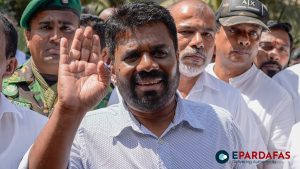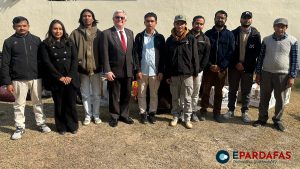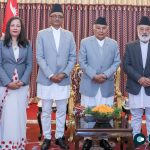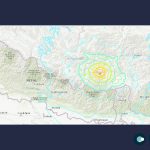
Saima Wazed Confirmed as WHO Southeast Asia Regional Director

The executive board of the World Health Organization (WHO) officially confirmed Saima Wazed as the UN body’s Southeast Asia regional director on Wednesday. Wazed is poised to commence her five-year term on February 1, marking a significant milestone in the WHO’s leadership.
In her acceptance speech delivered after taking the oath in Geneva, Wazed expressed her enthusiasm for the journey ahead. “There is a lot of work to be done, and I am extremely pleased to be starting this journey at this moment with all of you,” she declared. “I am excited for all that we can, and will, do together in the coming years.”
Saima Wazed is the first individual from Bangladesh to assume the role of the regional director for the WHO South-East Asia Region (SEARO) and only the second woman to hold this esteemed position. Her election as the regional director took place following a vote by the regional committee for South-East Asia on November 1, 2023, in New Delhi, India, where she triumphed over Nepal’s Shambhu Acharya, a senior public health official at the WHO in Geneva, Switzerland.
The competition between Wazed and Acharya garnered attention, and the Bangladeshi Prime Minister Sheikh Hasina, who is Wazed’s mother, intensified lobbying efforts in favor of her daughter. However, this drew criticism from international media outlets, including accusations of leveraging political influence, especially in collaboration with India.
Wazed secured eight out of 10 votes cast, while Acharya garnered two. It is noteworthy that Myanmar, one of the 11 member countries of the regional body, did not attend the meeting and the subsequent voting process.
In her acceptance speech, Wazed outlined her key priorities for the region. She pledged to place a “strong focus on mental health,” addressing an area that has been long-neglected. Wazed emphasized the need to establish parity between physical and mental health within healthcare systems.
Furthermore, she articulated her commitment to devising and implementing specific interventions for women, children, and pregnant women, with an emphasis on education, empowerment, and prevention. This comprehensive approach includes well-being and health screenings, vaccination and nutrition programs, and the promotion of both physical and mental well-being.
Technology also featured prominently in Wazed’s vision, as she highlighted the transformative potential of digital innovations in public health. From telemedicine and remote patient monitoring to data-driven diagnostics and personalized treatment plans, she sees technology as a great enabler that holds immense promise.
Wazed underscored the importance of transparent, sustainable partnerships, collaboration, and financing that provide an adequate return on investment. Universal health coverage, strengthening health systems, and addressing health inequalities are among her other top priorities.
Emergency response and pandemic preparedness are integral aspects of Wazed’s agenda. She aims to encourage countries to engage in comprehensive multi-level planning for pandemic preparedness linked to health system strengthening.
The regional director-elect also expressed her commitment to prioritizing the unique needs of marginalized and vulnerable groups in health infrastructure planning. Wazed emphasized that her goal is to ensure that no one is left behind in the pursuit of equitable access to quality healthcare services.
As Saima Wazed prepares to assume her role as the WHO Southeast Asia regional director, her vision and commitment signal a new chapter in regional public health leadership. Her proactive approach and dedication to addressing pressing issues, particularly in mental health and vulnerable populations, reflect a promising start to her tenure. The international community will be keenly watching as Wazed embarks on this crucial responsibility, with expectations for transformative and inclusive healthcare advancements in the Southeast Asia region.












Comments